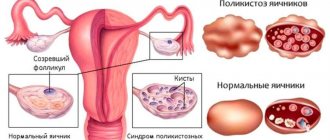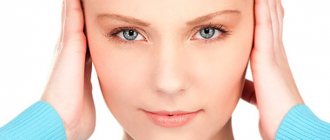There is a wide range of contraceptives on the shelves of pharmacies. Many women during their reproductive years prefer birth control pills, considering them easy to use and reliable in use.
An important aspect is that, if desired, you can easily refuse them. It is very important that when choosing a drug, a lady does not forget to take into account her age. In this publication we will look at which birth control pills are best to use after 45 years of age.
Features of contraception after 45 years
Normally, after 45 years of age, women begin menopause, which gynecologists romantically call the golden autumn.
The following main phases of this life stage are distinguished:
- Premenopause - begins with the first symptoms of menopause. It is characterized by a gradual decrease in the production of sex hormones by the ovaries. A woman's menstrual cycle begins to change. During this phase, only part of the cycles occur with ovulation. Therefore, it is more difficult for a woman to become pregnant than before, but the likelihood of this event occurring remains high.
- Menopause or menopause is a woman's last independent period. Normally they come at age 50. They can only be determined retrospectively. A gynecologist diagnoses a woman as having menopause when there has been no menstruation for 12 months.
- Postmenopause is the final phase in which the ovaries completely stop working and menstruation no longer comes. The body adjusts its work to low levels of sex hormones.
Classification of hormonal contraceptives.
When the first symptoms of menopause appear before the age of forty, they speak of early menopause. With timely and competent treatment, it is possible to delay early menopause. If menopause occurs after 55 years, then doctors diagnose late menopause. Many representatives of the fair sex are interested in whether contraception is needed during menopause or whether it is already possible to stop using protection.
Since follicles with eggs remain in the ovaries for 3-5 years after the cessation of menstruation, the World Health Organization has developed clear recommendations for women in this regard.
If menopause occurs in a woman under 50 years of age, then contraception should be used for another 2 years. When a woman reaches menopause after 50 years of age, she needs to take protection during 1 year of absence of menstruation.
Sources
- Tadele A., Berhanu M. Trends and influencing factors of long-acting contraceptive utilization among contraceptive users in Ethiopia: repeated cross-sectional study. // BMJ Open - 2021 - Vol11 - N1 - p.e037103; PMID:33441349
- Skracic I., Lewin AB., Steinberg JR. Types of Lifetime Reproductive Coercion and Current Contraceptive Use. // J Womens Health (Larchmt) - 2021 - Vol - NNULL - p.; PMID:33404346
- Pearce E., Jolly K. Emergency Oral Contraceptive Consultations in Pharmacies in a Rural Setting: An Epidemiological Analysis. // J Pharm Pract - 2021 - Vol - NNULL - p.897190020961698; PMID:32990131
- Demir O., Ozalp M., Sal H., Aran T., Osmanagaoglu MA. Evaluation of the frequency of coitus interruptus and the effect of contraception counseling on this frequency. // J Obstet Gynaecol - 2020 - Vol - NNULL - p.1-6; PMID:32543257
- Gyllenberg F., Saloranta T., But A., Gissler M., Heikinheimo O. Predictors of choosing long-acting reversible contraceptive methods when provided free-of-charge - A prospective cohort study in Finland. // Contraception - 2021 - Vol101 - N6 - p.370-375; PMID:32061566
- Mugore S. Exploring Barriers: How to Overcome Roadblocks Impeding the Provision of Postabortion Care to Young People in Togo. // Glob Health Sci Pract - 2021 - Vol7 - NSuppl 2 - p.S342-S349; PMID:31455629
- Gyllenberg FK., Saloranta TH., But A., Gissler M., Heikinheimo O. Induced Abortion in a Population Entitled to Free-of-Charge Long-Acting Reversible Contraception. // Obstet Gynecol - 2021 - Vol132 - N6 - p.1453-1460; PMID:30399102
- Liu J., Schatzkin E., Omoluabi E., Fajemisin M., Onuoha C., Erinfolami T., Ayodeji K., Ogunmola S., Shen J., Diamond-Smith N., Sieverding M. Introducing the subcutaneous depot medroxyprogesterone acetate injectable contraceptive via social marketing: lessons learned from Nigeria's private sector. // Contraception - 2021 - Vol98 - N5 - p.438-448; PMID:30071196
- van der Straten A., Agot K., Ahmed K., Weinrib R., Browne EN., Manenzhe K., Owino F., Schwartz J., Minnis A. The Tablets, Ring, Injections as Options (TRIO) study: what young African women chose and used for future HIV and pregnancy prevention. // J Int AIDS Soc - 2021 - Vol21 - N3 - p.e25094; PMID:29600595
- Brandi K., Woodhams E., White KO., Mehta PK. An exploration of perceived contraceptive coercion at the time of abortion. // Contraception - 2021 - Vol97 - N4 - p.329-334; PMID:29253582
Classification of birth control pills
All contraceptives in the form of tablets are divided into two groups: hormonal and non-hormonal.
The first group is in turn divided into subgroups:
- Combined oral contraceptives or COCs for short. They contain artificial analogues of female sex hormones - estrogens and gestagen. The pharmaceutical market offers monophasic, biphasic and triphasic drugs. All monophasic tablets contain the same amount of estrogens and gestagen. There are 2 types of tablets in the package of two-phase preparations. They differ from each other in different amounts of gestagens. Moreover, they have the same amount of estrogens. A three-phase hormonal drug has 3 types of tablets, which differ from each other in different amounts of gestagen and estrogens in the composition.
- Progestin oral contraceptives (OGC), also known as mini-pills. They contain only gestagen - an analogue of the female hormone progesterone.
Modern hormonal contraceptive pills contain microdoses of estrogens and gestagen. Non-hormonal pills are not taken orally, but are inserted into the vagina immediately before sexual intercourse. Before choosing any drug, you should consult a gynecologist.
Types of hormonal medications
When carrying out hormone replacement therapy, various groups of drugs are used to normalize hormonal balance and combat menopausal symptoms. They contain synthetic analogs of sex hormones produced in the human body. Effective and common hormonal drugs include:
| Pharmacological drug | Active substance | Manufacturer | average cost |
| Livial | Tibolone | Organon, Netherlands | 2400-2500 rubles |
| Estrofem | Estradiol | NOVO NORDISK A/S (Denmark) | 1300-1500 rubles |
| Trisequence | Norethisterone and estradiol | Novo Nordisk A/S DK-2880 Bagsvaerd, Denmark | 1800-2000 rubles |
| Proginova | Estradiol valerate | Schering SA is a subsidiary of Schering AG (France) | 540-600 rubles |
| Klimonorm | Levonorgestrel and estradiol | Alvogen IPCo Sarl (Luxembourg) | 730-850 rubles |
| Femoston | Dydrogesterone and estradiol | Solvay Pharmaceuticals B.V., The Netherlands. | 1100-1200 rubles |
| Duphaston | Dydrogesterone | Abbott Healthcare Products BV (Netherlands) | 520-700 rubles |
These glucocorticosteroids include estradiol esters, micronized forms of progesterone and estradiol, as well as conjugated estrogen from horse urine and its synthetic analogues.
What medications should be preferred during perimenopause?
Types of drugs for contraception.
During perimenopause, hormonal changes occur. This leads to the appearance of menopausal symptoms: hot flashes, irritability, nervousness, tearfulness, depression, headaches, etc.
Only in some female representatives the manifestations of menopause are of low intensity and do not cause much discomfort. Most women require medical attention.
Birth control pills contain sex hormones, and a decrease in their levels provokes menopausal symptoms. In addition, such drugs suppress the hormonal function of the ovaries, and thereby prepare the woman’s body for the natural decline of their activity.
It is important to consider that sex hormones during the premenopausal stage are needed by a woman only in a certain amount. Therefore, you cannot use the same contraceptives as at a young age. After all, they contain high doses of gestagen and estrogens. During premenopause, doctors prescribe birth control pills to women, which contain small doses of hormones.
When a woman has tumors in the mammary glands or organs of the reproductive system, she is prescribed birth control pills without estrogen. Thus, medications correctly selected by the gynecologist protect the woman from pregnancy, which is quite possible at this stage, and also smooth out menopausal manifestations, avoiding complications.
Expert opinion
Alexandra Yurievna
General practitioner, associate professor, teacher of obstetrics, work experience 11 years.
Taking birth control pills must be under medical supervision. Sometimes, against the background of hormonal changes, the body may produce an unpredictable reaction and the drug will need to be replaced.
Mechanism of action of hormonal drugs
New generation glucocorticosteroids are medications containing synthetic hormones identical to those produced in the human body. They are synthesized by the genitals, endocrine glands and pituitary gland. After 40-45 years, the level of sex hormones in the bloodstream rapidly decreases, which negatively affects reproductive function.
In women, such an imbalance leads to the development of menopause, accompanied by unpleasant symptoms - hot flashes, sudden mood swings, nervousness.
There are several types of glucocorticosteroid drugs that are used when there is an insufficient amount of hormones of certain groups.
They help replenish the deficiency of essential hormones in the body, improve sleep, get rid of depression and hot flashes, and remove other symptoms. Glucocorticosteroids for men and women over 45 years of age can be prescribed as monotherapy, and can also be used in the complex treatment of endocrine disorders accompanied by hormonal imbalance.
Indications for taking birth control pills
For women over 45 years of age who have no contraindications, it is advisable to take combined microdose contraceptives. Tablets with estrogen not only have a high degree of protection against unplanned pregnancy and reduce the intensity of menopausal symptoms, but also have an antiandrogenic effect.
With the onset of premenopause, the level of estrogen in a woman’s blood decreases, and the amount of male sex hormones androgens increases. As a result of such changes, a woman begins to grow hair according to the male pattern: above the upper lip, on the chin, stomach, hips and even back. The skin becomes oily and thicker.
When the drug contains estrogens, they increase the level of the hormone in the woman’s blood and prevent the described changes in appearance. This is the antiandrogenic effect. They also reduce the risk of developing concomitant diseases during menopause: osteoporosis, atherosclerosis and others. Taking them prevents the appearance of tumors in the uterus and appendages.
Hormonal medications for men
After 45 years, the production of the hormone testosterone in the male body slows down. Such reasons lead to unpleasant consequences - deterioration of potency, decreased libido, female-type body weight gain, as well as an unstable psycho-emotional state.
To restore hormonal balance and improve health, men are prescribed the following medications from the group of glucocorticosteroids:
- Methyltestosterone
- contains a modified testosterone substitute that is not destroyed in the digestive system. This medication causes many side effects, so it is rarely used in modern medical practice. - Andriol
— is highly effective and safe, does not have a toxic effect on the liver. Andriol is prescribed for disorders accompanied by decreased potency, physical weakness and sudden mood swings. - Androgel
is a glucocorticosteroid in the form of a gel intended for application to the skin of the forearm or abdomen. Supports full production of testosterone in the body and increases stamina in bed. The disadvantage is the high price.
For hormonal disorders, medications may be prescribed in the form of injection solutions - for example, Sustanon 250 or Nebido. Such injections are given to a man once every 2-3 weeks.
Contraindications to hormonal contraception
Benefits of using combined oral contraceptives.
Hormonal contraceptive pills are contraindicated for women in the following cases:
- For insulin-dependent diabetes mellitus. In a patient with this diagnosis, the vessels are not in the best condition. Taking contraceptives will only worsen the situation.
- When there are cardiovascular diseases, as well as after a stroke or heart attack. Sex hormones increase blood viscosity, which can provoke intensive development of the disease or complications.
- Liver failure was diagnosed. This disease affects metabolism and hormonal levels.
- Obesity. Hormones contribute to the appearance of additional fat folds.
- The lady smokes heavily. This bad habit leads to vasoconstriction and, accordingly, slower blood flow. Taking hormones can lead to the formation of blood clots and thereby provoke disturbances in the functioning of the heart.
Expert opinion
Roman Andreevich
Candidate of Medical Sciences, gynecologist-obstetrician, 14 years of work experience.
Therefore, it is important for the fair sex to know all the contraindications and inform the gynecologist about the presence of diseases and bad habits.
Side effects
Hormonal medications are used only under strict medical supervision, as they can cause numerous side effects.
One of the most common negative consequences of taking it is causeless weight gain.
That is why they can be prescribed for underweight. To lose weight and prevent weight gain, hormone therapy must be combined with diet.
Other side effects of glucocorticosteroids:
- disturbances in the functioning of the cardiovascular system;
- increased blood cholesterol levels;
- the development of diseases of the gastrointestinal tract - gastritis, stomach or duodenal ulcers;
- decreased libido;
- weakness of muscle tissue;
- decreased immunity;
- nervousness and sudden mood swings.
With long-term use of hormonal drugs, disruptions in the menstrual cycle, enlarged mammary glands, vaginal bleeding and nagging pain in the epigastric region are possible.
List of the best products
We bring to your attention the names of the best birth control pills after 45 years.
These are monophasic combined microdosed drugs.
Yarina
Yarina - produced by the German company Schering. The tablets are intended for women of any age who have no contraindications to taking hormonal contraception. But due to the fact that the product, in addition to reliable protection against unwanted pregnancy, has properties that affect appearance, they are especially effective during menopause.
Due to the antimineralocorticoid and antiandrogenic properties of the tablets, hidden hormone-dependent edema will disappear, excess weight will not appear, and the oiliness of the skin and hair will also decrease. Yarina contains microdoses of active substances: 30 mcg of ethinyl estradiol, an analogue of estrogen, and 3 mg of drospirenone, an analogue of progesterone.
Femoden
Femoden is a drug from the German company Bayer Weimar GmbH and Co. The tablets are intended for women who have not yet reached menopause. In addition to a high degree of protection against unplanned pregnancy, the drug reduces the risk of developing malignant neoplasms in the uterus and ovaries.
For a woman taking the drug, the cycle becomes regular, and pain during menstruation decreases, which is important in the initial phase of menopause. The main active ingredients of the tablets are analogues of sex hormones: ethinyl estradiol 30 mcg and gestodene 75 mcg.
Logest
Logest is an effective drug produced by the French company Delpharm Lille S.A.S. for the German company Bayer Pharma AG. It reliably protects the woman, reduces the pain of menstruation and reduces the likelihood of cancer of the uterus, ovaries and mammary glands, as well as ovarian cysts and inflammatory diseases of the reproductive system. The product has the following main active ingredients: ethinyl estradiol - 0.02 mg and gestodene - 0.075 mg.
All ladies who take these drugs during menopause note that they are very good. Firstly, they are convenient to take - you don’t need to keep track of which pills to take. After all, they are all the same. Secondly, the drugs reliably protect against unplanned pregnancy, and delaying taking the pill for 12 hours does not reduce the effectiveness of protection.
Thirdly, the drugs contain microdoses of artificial hormones. Therefore, for most women they do not cause any side effects. Some women note side effects for a short time in the form of decreased libido, bowel movements and others. Over time they pass. Fourthly, all the ladies noticed an improvement in their appearance. Many are pleased to note that their breast volume has increased, which has become a pleasant bonus.
19-35 years old
For women 19-35 years old, all means and methods of contraception are suitable , but intrauterine devices are considered the most optimal. This method is cheap and does not require the constant self-monitoring required when taking birth control pills.
Intrauterine device. Photo: freepik.com
At the same time, hormonal contraception remains one of the most effective and acceptable methods of preventing unwanted pregnancy. In addition, hormonal contraceptives also play an important role in the prevention of diseases such as menstrual irregularities, infertility, and endometriosis. At this age, doctors recommend using low-dose combination drugs as the safest.
Bottom line
Women over 45 years old should definitely use protection. Monophasic combined contraceptive pills are an effective and convenient means of contraception. Their choice should be made together with a gynecologist and taken under his constant supervision.
The drugs Yarina, Femoden and Logest provide a high contraceptive effect, improve appearance, stop the manifestations of menopause, and also prevent the appearance of tumors in the mammary gland, ovaries and uterus. We wish you good health!
Share your experience of taking birth control pills after perimenopause.
Hormones against cancer and menopause
Hormonal drugs are often used in complex therapy of oncological diseases. When cancer develops during menopause, medications are prescribed that simultaneously relieve the unpleasant symptoms of menopause and inhibit further tumor growth. The most commonly used are Microfollin and Chlortrianisene.
Microfollin
- prescribed in the complex treatment of breast cancer that develops during menopause. This drug contains artificial estrogen analogues.
Chlorotrianisene
- used as part of complex therapy for breast cancer during menopause. The medication contains a synthetic estrogen substitute, which not only effectively inhibits the growth of neoplasms, but also eliminates the unpleasant manifestations of menopause.
Glucocorticosteroids
for the treatment of cancer during menopause are selected only by an oncologist after a full examination. The dosage and duration of taking such medications is determined individually; their independent use is not allowed - otherwise it can only accelerate the growth of the cancerous tumor.
“Bonuses” of KOCs
- ensure the establishment of a regular menstrual cycle [9],
- reduce blood loss, reduce the severity of anemia caused by heavy uterine bleeding
- significantly reduce hot flashes, sweating and other unpleasant symptoms of perimenopause [4].
Sometimes contraceptives are prescribed during perimenopause specifically to eliminate unpleasant symptoms. In this case, it is important to remember that hormonal therapy prescribed for this purpose may not provide the desired contraceptive effect if the dosage regimen is not followed or, for example, if you smoke. [eleven]








